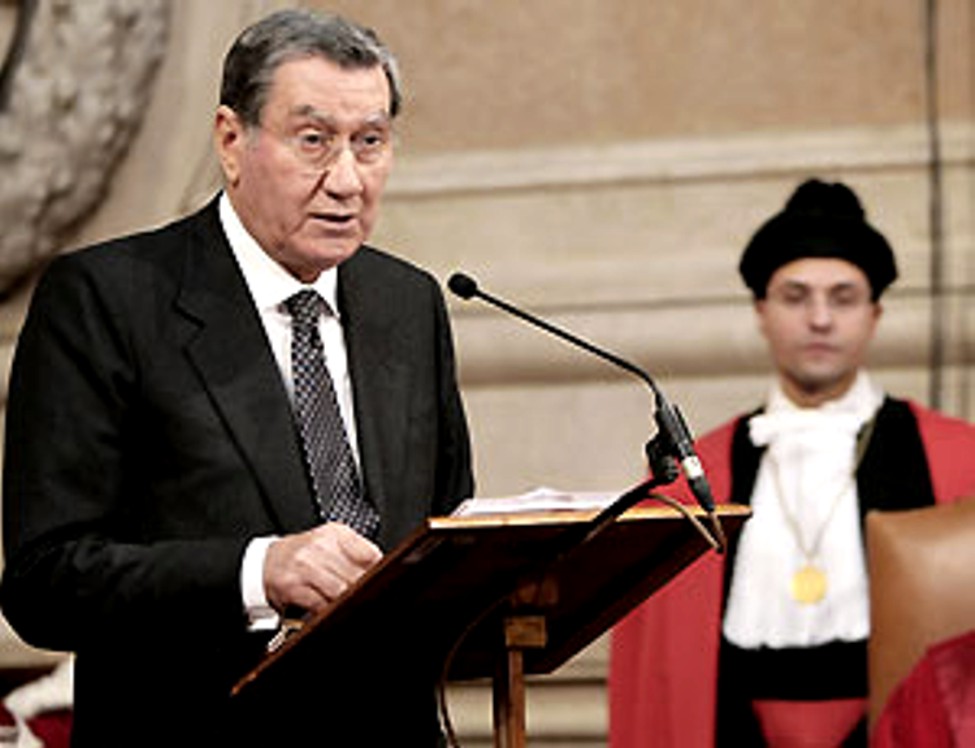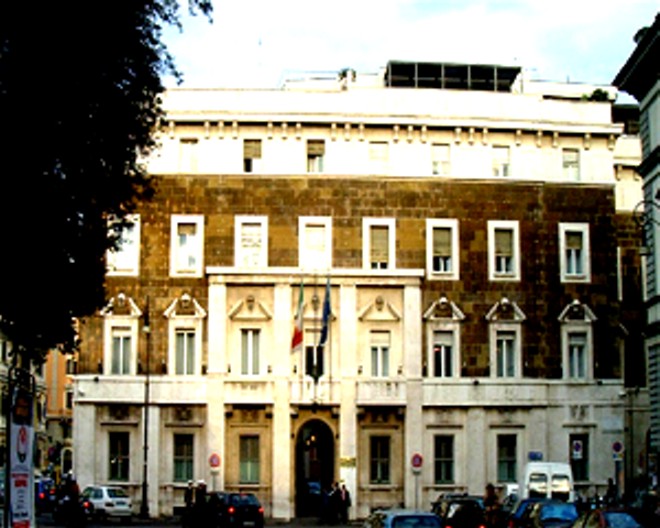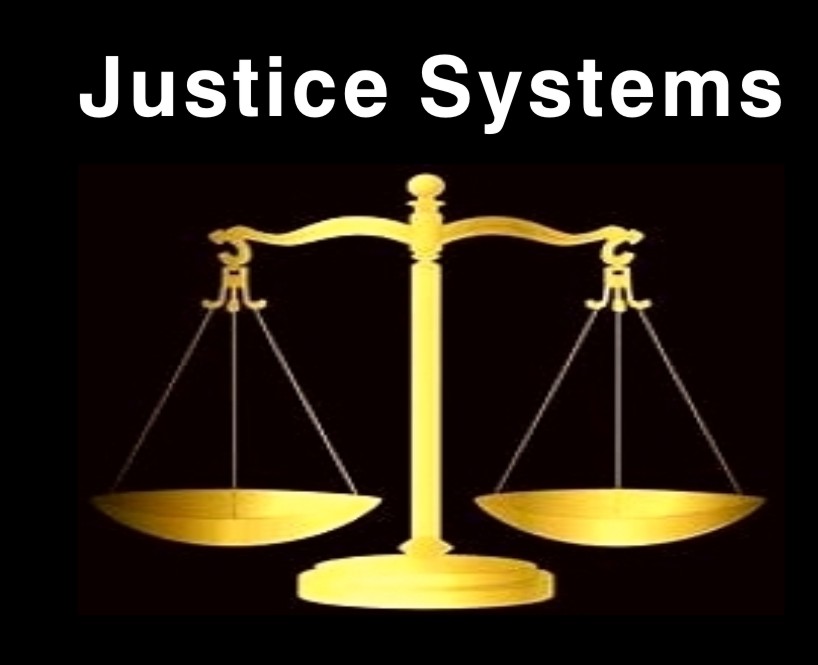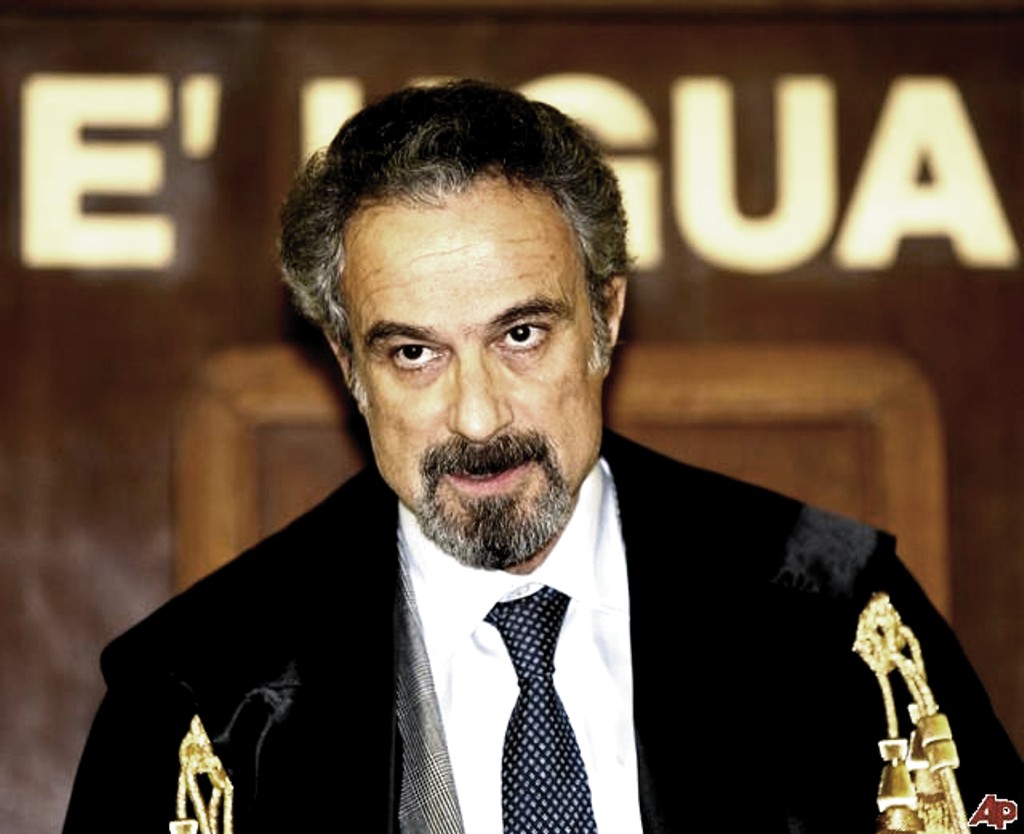
Category: The judiciary
Italy’s Unpopular Politicians And Mafia Fellow Travelers Versus Its Popular Law Enforcement
Posted by Our Main Posters

[Above and below: several of over 100 car bombings Italian police and prosecutors were killed in]
1. On The Pro-Justice Side…
This puts the faux Nencini “end-of-civilization-as-we-know” crisis into some sensible context.
The Italian system doesn’t exactly come out badly compared to say that of the US. Surprise, surprise: See here who agrees.
Comparatively speaking, Italy has a much lower crime rate than the US, a much lower murder rate, a highly professional un-elected police hierarchy, a much smaller court system, and a miniscule number of prison cells.
The mafias are now mostly backed into small pockets..
For reasons to do with Italian history pre-WW II the system keeps politicians very much at arms length.
Almost every other justice system in the world comes under the Prime Minister’s or equivalent’s control, and it his or her party that appoints the judges. The Italian system comes under the separately-elected and non-partisan President of the Republic.
All judges and all prosecutors follow a career path laden with checks and balances, learning exercises and tests. (At this the highly-competent and impartial Dr Mignini excels and he will soon be the attorney-general of a region.)
The system is extremely pro-defendant - probably the most pro-defendant in the whole world. See this article and this article for proof.
The number of Italians who are in prison at any one time is proportionally only about 1/5 that of the United States. Take a look.
It is not like everyone in Italy is impatiently waiting for the fatuous posse of Preston, Heavey, Fischer & Moore to turn up and save them from themselves. There is no problem there.
Our Italian poster Machiavelli (Yummi) who reported for us on the Cassation and Nencini appeals has assembled these facts on what the Italian population actually thinks.
For comparison, in 2011 the percentage of Italians who declared they trust the justice system “a lot” or “enough” was 53.3%. By comparison, the percentage of Italians who declared they trust the government “a lot” or “enough” were 14.7%, and those who trust the parliament were only 15%.
In 2012, the percentage of Italians who trust the parliament is now only 9.5%, and those who trust the Mario Monti administration are only 21.1%.
Over the eight years from 2004 to 2012 the percentage of Italians who trust the justice system was always bigger than those who trust parliament or government by at least ten points, and in some years we can see a spread of 20, 30, even 39 percentage points achieved by the judiciary over the parliament and government.
However, some cases of corruption (such as our Hellmann-Zanetti case, but also several others indicated by the Rapporto Italia 2012) do hamper trust.
The most trusted institutions in Italy above all are the Carabinieri (74% of Italians trust them) and the Polizia di Stato (71%).
Which means the most trusted institutions are precisely those law enforcement instruments which are deployed to enforce the orders of prosecutors.
(My source is “Rapporto Italia 2012” by EURISPES).
More evidence of this popularity. And even more.
2. On the Anti-Justice Side
In the past decade both corrupt politicians and the mafias have been remorselessly rolled back.
The Perugia Prosecutor-General’s Office being close to Rome and notoriously hard to bend was given national jurisdiction over the corruption of the 2006 Winter Olympics and the 2010 rebuilding following a huge earthquake.
The Florence Prosecutor-General’s Office being close to Rome and notoriously hard to bend was given national jurisdiction over the corruption of the contracts for the high-speed rail links that pass through Florence and on.
But attempts of corrupt politicians and others to meddle in this case go on and on and on.
Knox and Sollecito may think it is for pure love of them. Think again. There are unsavory parties on the anti-justice bandwagon who if it suited them would disappear Knox and Sollecito in the blink of an eye.
Politics played a part in ex-MP Rocco Girlanda, a Berlusconi poodle, accessing Capanne Prison multiple times to slobber over Knox. As a member of the Justice Committee under former Berlusconi-party MP Giulia Borngiorno’s sway (hows THAT for a conflict of interest?) Girlanda (1) petitioned the President for Knox, (2) tried to cut the national police wiretap budget, (3) tried to get Perugia prosecutors investigated, (4) repeatedly appeared on TV and in other media to make false allegations, and (5) chaired several US/Italy “liberation” meetings.
Sollecito lawyer Giulia Bongiorno has been wearing her member-of-parliament hat to stir up the (essentially toothless) Ministry of Justice against Judge Nencini. And to try to get the Council of Magistrates to give her client a break (Good luck with that - they wont move.)
The mafia backseat drivers (known about in Italy but not reported in the US) are there in a minor but pervasive way. Their roles were summarised in several places including this post here.
It is odd, to say the least, to see such self promoting reformers of the Italian system as Preston, Heavey, Fischer and Moore happily carrying water for the mafias.
So What We May Expect
Judge Nencini is a seasoned mafia fighter, and he is also a seasoned fighter of politicians who are corrupt and try to bend the system their way. But his record is very clear. Attack him for murky end - and he does not exactly back down.
From the point of view of Sollecito’s prospects, this faux storm looks like another huge wrong move.
Italian Judge Ruling Is Tough But Fair In Another Case Involving Americans
Posted by Peter Quennell
We’ve seen no trace of anti-Americanism in the Perugia case, other than restrained reactions by prominent commentators to some strident anti-Italianism from the US.
Typically the two populations get along and like one another, they eagerly buy one another’s products, they visit one another’s countries in droves, and at the political level Italy and the US are very close allies.
So. Does the Italian judiciary perhaps have a covert beef against Americans?
We don’t see that one either. The main Americans that Italian judges see appearing in front of them are students, who seem to have quite a knack there for dropping themselves in it. We don’t post on all those cut-short escapades, but there are several a year reported, and we did post on two that happened in Florence.
All of the student cases are treated humanely, and the American Embassy in Rome is not kept particularly busy lecturing Italians on how to handle each case. Actually because of this case the Embassy keeps a very low profile.
Judge Oscar Magi (image above) has now issued a 200-page explanation of his mainly-guilty ruling in the CIA kidnapping case. (This document is the equivalent of what we will see within a month on Meredith’s case.)
Fearless, tough, and seemingly fair. The New York Times impartially reports.
The Italian secret service was most likely aware of, “and perhaps complicit in,” the abduction of an Egyptian cleric from the streets of Milan in 2003, a judge in Milan said Monday. But, he added, state secrecy prevented the court from proving this.
The statement by the judge, Oscar Magi, was part of a 200-page document explaining his reasoning behind the landmark November ruling that convicted 23 Americans, most of them Central Intelligence Agency operatives, of kidnapping the cleric. It was the first case to yield convictions in the practice of “extraordinary rendition,” in which terrorism suspects are captured in one country and taken to another, where they may be subjected to coercive interrogation techniques.
Judge Magi convicted a former C.I.A. base chief and 22 other Americans of kidnapping in the abduction of an Egyptian cleric, Osama Moustafa Hassan Nasr, also known as Abu Omar, on Feb. 17, 2003. Prosecutors said the cleric was taken from Milan in broad daylight and flown from an American air base in Italy to a base in Germany and then on to Egypt, where Mr. Nasr asserts he was tortured….
Judge Magi acquitted three Americans, citing diplomatic immunity, and two Italians, citing state secrecy. Tried in absentia, the other 23 Americans are considered fugitives and are sought under a European Union arrest warrant. Through their lawyers, they pleaded not guilty….
The Italian government is not expected to request extradition of the Americans, who are not expected to serve jail time. Still, the case marked the first time a judge in an allied country had placed C.I.A. agents on trial.
Judge Magi wrote that in 30 years as a penal judge, he had “very rarely” heard testimony “so precise, attentive and correct regarding such difficult and serious investigations,” adding that he had never seen a penal trial in which events had been reconstructed with such “certainty” and “such a degree of authority.”
Why The Italian Judiciary Is Probably Less Prone to Pressure Than Any Other In The World
Posted by Commissario Montalbano

Image above: The Consiglio Superiore della Magistratura in session
Some of the very best lawyers in the UK and USA and around the world are learning a lot about the Italian system by way of the Perugia trial - and are in many, many ways impressed.
Italian magistrates enjoy an extraordinary level of autonomy from the other powers of government (executive and legislative) and the point of this post is to explain why. This autonomy is above all due to the Italian constitutional framework.
That framework is intended to guarantee such an exceptional level of independence so as to avoid the abuses that occurred during Mussolini’s fascist regime, when Italian magistrates were forced by the executive to prosecute (and persecute) political opponents to the fascist dictator.
The source of such independence is set forth in Title IV of the Italian Constitution which in particular provides for an independent body [image at top here] which is called the “Consiglio Superiore della Magistratura” or C.S.M. (Superior Council of Magistrates). This is the self-governing body for Italy’s judiciary, and it comprises ordinary (civil and criminal) judges and prosecutors.
Its competence is based upon Articles 104 and 105 of the Italian Constitution, as well as several ordinary laws. Article 105 says that the C.S.M. is responsible for the hiring, training, assignments, transfers, promotions, appointments to the Supreme Court of Cassation, disciplinary actions and terminations of all Italian judges and prosecutors.
Article 104 opens with the statement: “Magistrates constitute an order autonomous and independent from any other power”. The article then proceeds to provide norms relating to the composition of such a self-governing body.
In order to guarantee the independence of magistrates and in accordance with the general principle of the balance of powers, the constitution establishes a mixed composition of the members of the CSM.
According to the constitution, two thirds of its components are in fact judges elected by all magistrates (judges and prosecutors) in special nationwide elections of the CSM (these are called “membri togati”, i.e. judicial members).
And one third is chosen by Parliament among law professors and attorneys with at least 15 years of experience (these are called “membri laici”, i.e. lay members). And in addition, there are three so called “˜De Jure’ members:
- the President of the Republic, who is the President of the CSM
- the President of the Supreme Court of Cassation
- the General Prosecutor before the Supreme Court of Cassation
The CSM then elects the Vice President of the Council choosing among its lay members appointed by Parliament. The Vice President is the real acting President of the CSM, since the role of the President of the Republic is primarily symbolic. The current Vice President of the CSM is Nicola Mancino [image below} who is a former Speaker of the Italian Senate.

Image above: Nicola Mancino, Vice President of the C.S.M., addressing the Council
The constitution establishes the above mentioned proportions, but not the number of members. However a law passed in 2002 sets the number of elected members at 24. Therefore at present there are 16 members (all judges) elected by magistrates and 8 members appointed by Parliament. With the three “De Jure” members the total is therefore 27 members.
The position of member of the CSM is incompatible with that of legislators, therefore CSM members cannot be members of Parliament or members of the Regional Assemblies.
Art. 107 reiterates the extraordinary independence of magistrates (judges and prosecutors) by stating: “Magistrates are not removable. They may not be dismissed or suspended or transferred to other locations or functions if not after a decision of the CSM, adopted either for reasons and with the guarantees established by law or with the magistrate’s consent.”
Ordinary laws also confer other powers to the C.S.M. including the power of giving opinions to the Government and to Parliament on proposed laws affecting the order of magistrates and the judiciary in general.

Image above: Palazzo dei Marescialli in Rome. The Seat of the C.S.M.
The extraordinary independence of Italian magistrates, especially considering that Italy is probably the only country in the world where not even State prosecutors report to the executive power, has created a lot of tensions between magistrates and politicians.
The Italian Prime Minister, Mr Silvio Berlusconi, who is indicted and undergoing prosecution in over twenty separate cases, some of which already concluded (for bribing of judges, illegal campaign financing, tax evasion, fraudulent accounting) dating back to the time before he entered politics in 1994, has often accused magistrates of having proceeded against him for politically motivated reasons.
His pressures on the CSM to discipline those magistrates whom he alleges are politically motivated in their prosecutions against him, have not succeeded, and the CSM has always defended the actions of magistrates against the frequent attacks from the executive power and from the many politicians who are under investigation for corruption and other crimes.
Recently Mr Berlusconi’s coalition passed a law to guarantee immunity from prosecution to the four highest offices of the Republic, including that of the Prime Minister, but the Supreme Constitutional Court struck it down as unconstitutional.
Currently out of 945 Members of Parliament in the two houses, there are about two dozen convicted felons and over 70 more under investigation by Italian magistrates. They’re all holding to their seats very tightly, since all members of the Italian parliament are immune from arrest, if not from prosecution.
Pressure on this extremely powerful and immune judiciary has not worked where real heavy-handed political and media persuasion was attempted. Be assured, the judiciary in Perugia will take no notice of it at all.
Impressive Public Push In Italy, Anti Crime, Pro Stronger Justice System
Posted by Peter Quennell
Four months ago now, Nicki presented us with this very enlightening picture of Italian justice.
Two of the important conclusions of Nicki’s piece relevant to the case in Perugia:
- The Italian system of justice is not only fair and cautious, it is painstakingly so, almost to the n’th degree.
- Prosecutors do not have an easy time of it, and they have to clear hurdle after hurdle to make their case.
The system may not be ripe for any great changes, but the Italian public certainly seems to be favoring law and order.
Now there’s been a huge anti-Mafia turnout in Naples. Click above for the BBC’s report.
“They Were Held For A Year Without Even Being Charged!!” How Italian Justice REALLY Works
Posted by Nicki

[Above: Cassazione, the Italian Supreme Court Of Appeals}
A misleading mantra
This frequently quoted claim above is maybe the most mindless and misinformed of all the mantras on the case.
Much of the US media and some of the UK media - sometimes enthusiastically, sometimes with reserve - has parroted the claim that Raffaele Sollecito and Amanda Knox were “held without charges” for nearly a year.
Perhaps bringing to mind the notion of two innocent bystanders to the crime being arbitrarily arrested? Locked up in cockroach-infested jails by abusive police? Led on by an evil prosecutor with endless powers up his sleeve, and nothing at all to slow him down? Lost and forgotten by any judges in the case?
Well, good luck with that one, if it’s designed to sway the process.
It irritates just about everybody here in Italy, the judiciary and the media included. And it is doing the defendants no good at all.
Negative stereotypes like these really should not be applied to a country that is one of the founding members of the EU, of NATO, and of the European Council, and of the G-7, G-8, OECD, and United Nations (the non-permanent member of the Security Council in 2007-2008).
So for media reporters and commentators, please let us get the facts straight. Once and for all?!
Origin of Italian jurisprudence
Italian jurisprudence developed from Roman Law. It was shaped in the course of history to become a modern and very fair system. Judicial powers are subjected to a very complex and extremely pervasive set of checks and balances, which really assure maximum protection of every citizen’s rights.
Comparing the US and UK common law system - a model founded on non-written laws and developed through judicial proceedings - with this system which arose from the Roman Law model - based on a written civil code - is really like comparing apples to oranges.
They were both conceived to protect individual’s rights at a maximum level, while seeking justice for the victims. But with entirely different processes.
One is not necessarily better or worse. But there are legal experts who think the Italian system is distinctly fairer - much more weighted toward the defendants. In the US and the UK the prosecutor usually has to make it through only one pre-trial hoop. In Italy the prosecutor has to make it through a whole row of pre-trial hoops.
Legal status of a witness and a suspect
Let’s see what happens in Italy to the legal status of a person who, while considered a “persona informata dei fatti” which means “a person who could yield useful information” in relation to a brutal murder, suddenly becomes a suspect in the eyes of the police.
If while interviewing the “person who could yield useful information” the suspicion arises that such person could have played an active role in the crime, their status then turns into that of a suspect. The police can then detain that suspect up to 48 hours.
Those 48 hours are the period within which a prosecutor - if he believes that the evidence of guilt is meaningful - can request a validation of the arrest by the Judge of Preliminary Investigation (the GIP).
If the judge agrees with the prosecutor that a serious indication of guilt exists, a warrant for the arrest is issued by the judge, and the person’s detention is thus validated.
Immediately, as soon as the status of “person who could yield useful information” status changes into the status of a suspect, the suspect person has a right to legal counsel. This legal counsel normally immediately appeals for the release of the suspect.
Subsequent hearings by different judges
Thus setting in motion what can be a LONG sequel of hearings - for which in US and UK common law there is no such equivalent. Each hearing is headed by a different judge. This judge examines prosecution and defence arguments, and decides if the suspect may be released on any of these bases:
- Seriousness of the clues presented by prosecution
- Likelihood of repeating a similar crime
- Likelihood of fleeing the country during the ongoing investigation
- Danger of tampering with, or fabricating evidence
If every one of the defence appeals fails, in front of a number of different judges, in a number of different hearings, and the investigation is officially closed, the suspect then goes on to a pre-trial hearing.
Once again here, yet another judge rules either to clear and release the suspect by rejecting the submitted evidence, or to send the suspect to trial on the basis of that evidence, thus making the charges official.
Judicial decisions on bail, house arrest, or jail
Now that the charges are official, the judge can decide if the defendant must await trial under house arrest, or in freedom, of if the defendant must remain in jail.
If the judge, based on their knowledge of the crime and the defendants, estimates that the chances of re-offending or fleeing the country are high, the suspect must remain in jail.
So nobody in Italy can be detained without a reasonable suspicion, a long series of judicial hearings (any one of which could set them free) or eventual official charges.
Amanda Knox and Raffaele Sollecito have not in fact been incarcerated for over one year due to zealous police or a bizarre prosecutor or the complicity of a number of judges throughout the process.
They have been incarcerated because an articulate and balanced process of law has officially and very fairly established there are strong indications that they willingly participated in the vicious murder of Meredith Kercher.
Failure of defenses to persuade judges
Their own lawyers have put up a tough fight for Raffaele Sollecito and Amanda Knox throughout the judicial process. But they have simply failed to convince the judges throughout that process.
One that actually seems strongly weighted in their favor.


